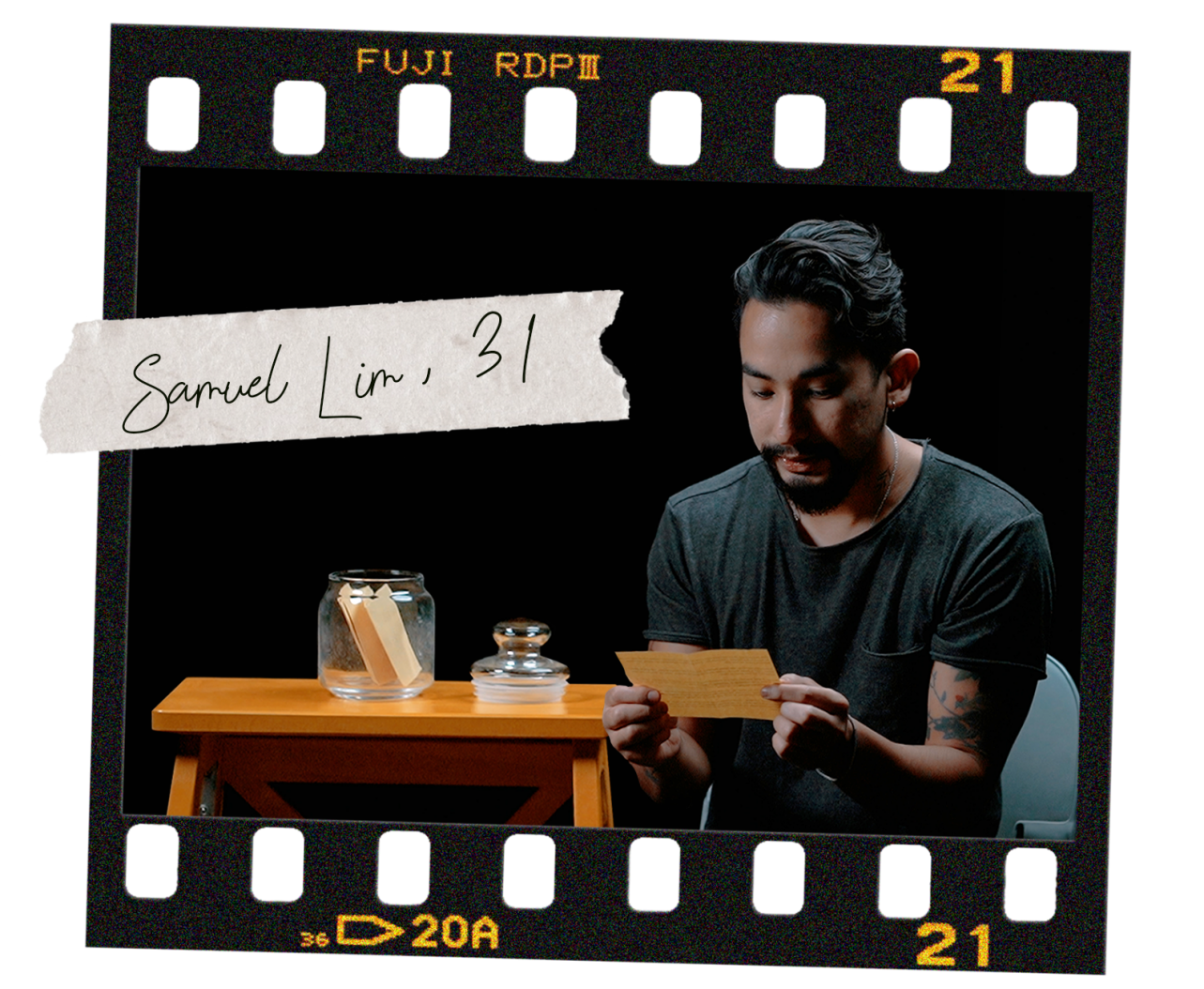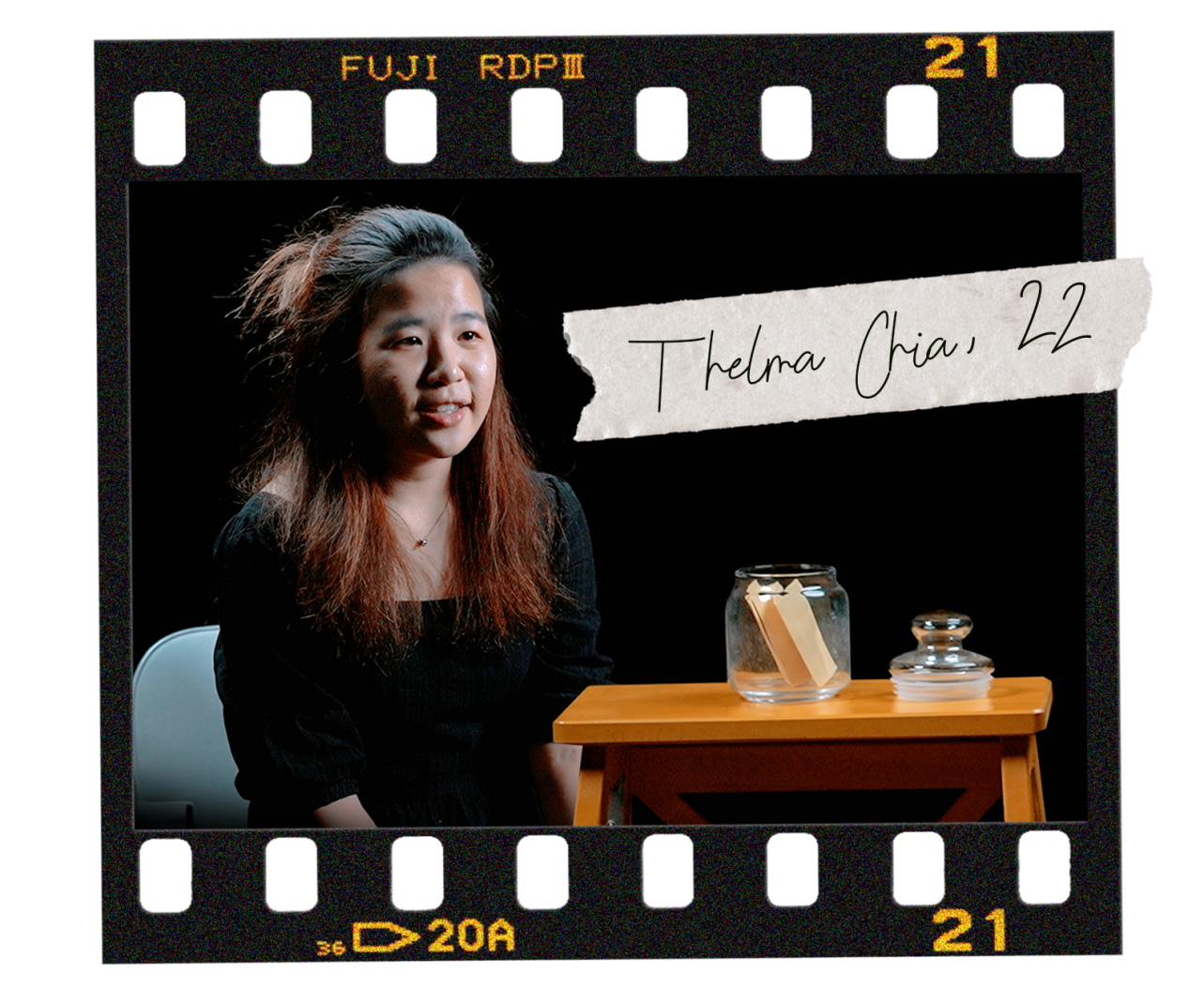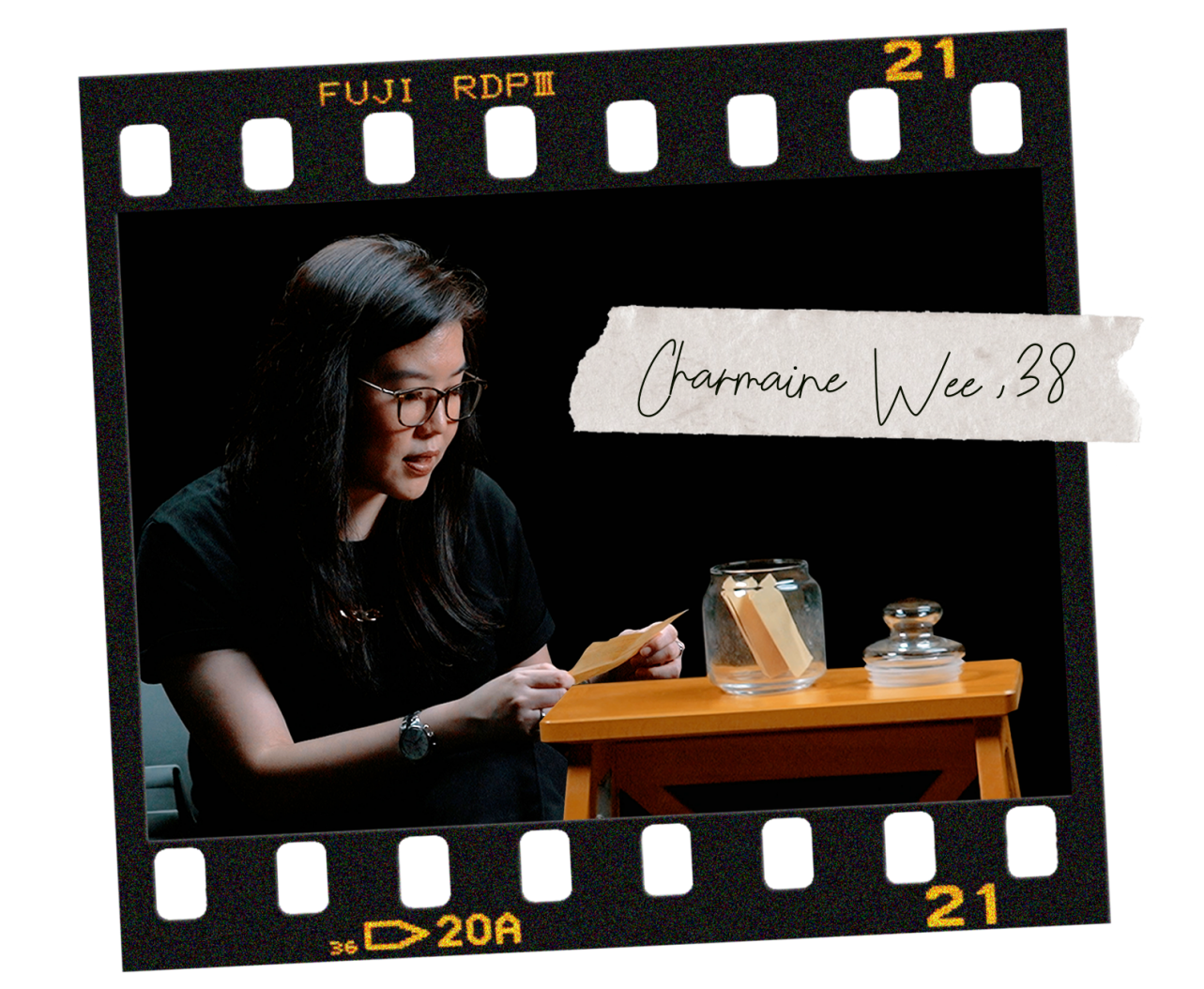Did you know that World Mental Health Day has been around for nearly three decades?
Yet while conversations on mental health have increased awareness and reduced stigma in recent years, we are still only at the tip of the iceberg when it comes to understanding this complex issue.
In episode two of our new series, Unheard Narratives, we hear from people with mental health conditions who share their experiences anonymously.
You may want to watch the video first for the full stories. Just note that these stories did not happen to this week’s cast (Charmaine, Samuel and Thelma) — they’re just three Thir.st readers who joined us to read and respond to these stories we received.
“IT’S THE SAME THING WHETHER YOU TALK TO A THERAPIST OR DADDY AND MUMMY”
In the first story shared, the anonymous profile who suffered from adjustment and anxiety disorder described the high costs of seeking medical treatment.
Because the bill was getting steep, his dad casually remarked that he didn’t actually need therapy sessions – because it was the “same” whether he spoke to a therapist or his parents.
Hearing that, Samuel noted that wrong thinking like this can end up causing much pain and hurt to the patient. He shared that such misunderstandings are unfortunately not uncommon in the experiences of people who face depression, especially from their parents or loved ones from different generations.

“Perhaps they had to fight to survive,” continued Samuel. “And they’ve got this fighter’s instinct, and they feel like it’s a mind over a matter thing – they don’t really quite understand depression.
“But for me, depression is not something that you can fight out of, it’s not a mind over matter thing.”
Revealing that he has been diagnosed with a mental health condition before, Samuel shared that it can be disappointing to hear others dismiss their condition as a “mind over matter” issue because it sends out the message that the patient himself is weak.
“I was really relieved when I was diagnosed because I realised that there is something I can do about it,” he said. “I’m not weak, you know, there’s actually a problem that I can work out. I sought therapy and medication and my life completely changed.”
Charmaine agreed with what Samuel had shared: “Psychotherapy sessions use training modalities to teach us how to handle difficult situations emotionally.
“These things are not taught by daddy or mummy unless daddy or mummy is a psychotherapist.”
But it isn’t just bystanders who might dismiss therapy sessions as nothing more than helpful chit-chats.
Sometimes the patient himself could also have the same misunderstanding.

Thelma, who struggled with anxiety, revealed that she was initially hesitant about counselling as she wasn’t sure it would be effective.
She had to put aside her scepticism as she went to the first session, and learn to open up to her therapist.
Through counselling, she came to learn how to identify triggers and use appropriate handles for whenever she catches her thoughts spiralling.
“Although talking to mummy, daddy and friends is so important, at the end of the day, when you’ve got a serious condition, you need that help,” Samuel affirmed.
That being said, Charmaine acknowledged that mental illness is an expensive illness to have. Each therapy session can cost a few hundred dollars with medication as a separate expense.
“If you don’t really have a medical condition or you want to work on emotional issues or family issues, you can go to Family Service Centres. They’re also all trained clinically and they will use the right modalities,” she suggested.
“Church therapists are also another way to receive help.”
“HOW CAN YOU HAVE DEPRESSION, YOU ALWAYS LOOK SO HAPPY”
The second profile in the video struggled to understand why she experienced hopelessness and despair even though she knew God.
Her mum could also barely believe that her daughter had depression because she “looked so happy” all the time.
Relating to her own experience with mental illness, Charmaine recalled questioning God when she was first diagnosed with schizoaffective disorder.
“I was like, ‘God, how could you let this happen? I’m even serving You. I’m doing all this. Why? How could you?” she shared.
Desperate for answers, she spoke to many pastors and friends.
Through her search, she came to conclude that the reason (the only one which comforted her) was because we live in a fallen world.
“Because of that, decay happens. Wear and tear naturally happens,” she said.

Charmaine also conceded that her reckless lifestyle in the past — in particular, experimenting with drugs — could have been a contributing factor.
“So then it’s not necessarily like why did God allow it to happen – when you put your hand on the fire, you kind of expect to get burnt. You don’t put your hand on the fire and go, ‘Oh God, don’t let it burn.’”
These days, she has learnt to reach for God during her state of confusion.
“I’ll just be in the moment with all the voices and I’ll have to just trust that there my God is there to tide me through this,” described Charmaine.
“He’s with me in this fire and I’m not alone. He’ll walk with me through this valley of the shadow of death and take me to the other side, however that’s going to look like.
“So I really commend the girl on this letter that she’s able to come to a space that is healthy. That she’s able to accept that she is sick and still hold on to God and see Him in a healthy way.”
Samuel was struck by how the people around the profile had been confused by her depression diagnosis since she looked so “happy”.
He shared that he is actually more sensitive to people who are “overly happy” because humour could be a coping mechanism.
“If you look at the life of Robin Williams, for instance, the thing that energised him was to make others happy,” elaborated Samuel.
“I think that was because he was so acquainted with that deep pain and sorrow within and just not being able to escape.”
Reading this person’s story reminded Samuel of the importance in keeping an eye out for everyone, not just the people who look sad, but also the people who seem strong, happy and content — because everyone struggles.
“Everyone is living in this broken world,” he reflected. “Everyone is, in some way, broken.”
“PEOPLE WITH MENTAL HEALTH CONDITIONS ARE ONLY CAPABLE OF SUBPAR WORK”
The third story was a painful one.
The profile had overheard senior management cautioning staff to be careful of people with mental health conditions, stating that they are often only capable of “subpar work” and that they may be “triggered” in the workplace.
“I think there’s this misconception that mental health conditions are so debilitating that you can’t even perform,” Samuel pointed out. “I was in a corporate world for about 10 years. It didn’t affect performance.”
… Keep an eye out for everyone, not just the people who look sad, but also the people who seem strong, happy and content — because everyone struggles.
Thelma agreed that there are many high-functioning people with mental health issues. Misconceptions like this thus make it hard for such individuals to share about their mental health issue for fear that others will not take them seriously or worse, discriminate against them.
“It is an indication of a lack of care or desire to understand,” said Samuel, lamenting that this is unfortunately the world we live in. “I would encourage people who go through this — try not to take it so personally.
“It’s not a personal attack. It’s someone’s ignorance, basically.”
For Charmaine, instead of feeling insulted, she sees such occasions as opportunities to address the misunderstandings others have of people with mental health conditions.
“It really depends on us, the person with the condition,” she affirmed. “How do we steward this? Do we allow the stigma to overcome us? Or do we rise up and help people understand what this is all about?”
This motivation to transform challenges into opportunities lies in Charmaine’s faith: “Despite having this condition, God is still good. I can still be loving and helpful and contribute to society.
“I can still be a blessing because God still calls me to be a blessing.”
Instead of shying away from all the labels that others throw on people with mental health conditions, Charmaine challenged viewers to walk out of shame and rise above the stigma.
“If we can overcome that, we can use this to be able to be light to others and show God’s grace,” she concluded.
If you’re feeling troubled and would like to chat with someone, help is available at these centres:
- Samaritans of Singapore (SOS): 1-767 (1-SOS) (24-hour) | pat@sos.org.sg| m.me/SamaritansofSingapore
- Institute of Mental Health: 6389-2222 (24-hour)
- National Care Hotline: 1800-202-6868
- Singapore Association for Mental Health: 1800-283-7019
- Care Corner Counselling Centre (English and Mandarin): 6353 1180
- TOUCHline (Counselling): 1800-377-2252
- Fei Yue’s Online Counselling Service: ec2.sg
- Tinkle Friend by Singapore Children’s Society: 1800-274-4788 | tinklefriend.sg (online chat)
- Silver Ribbon Singapore: 6385-3714








